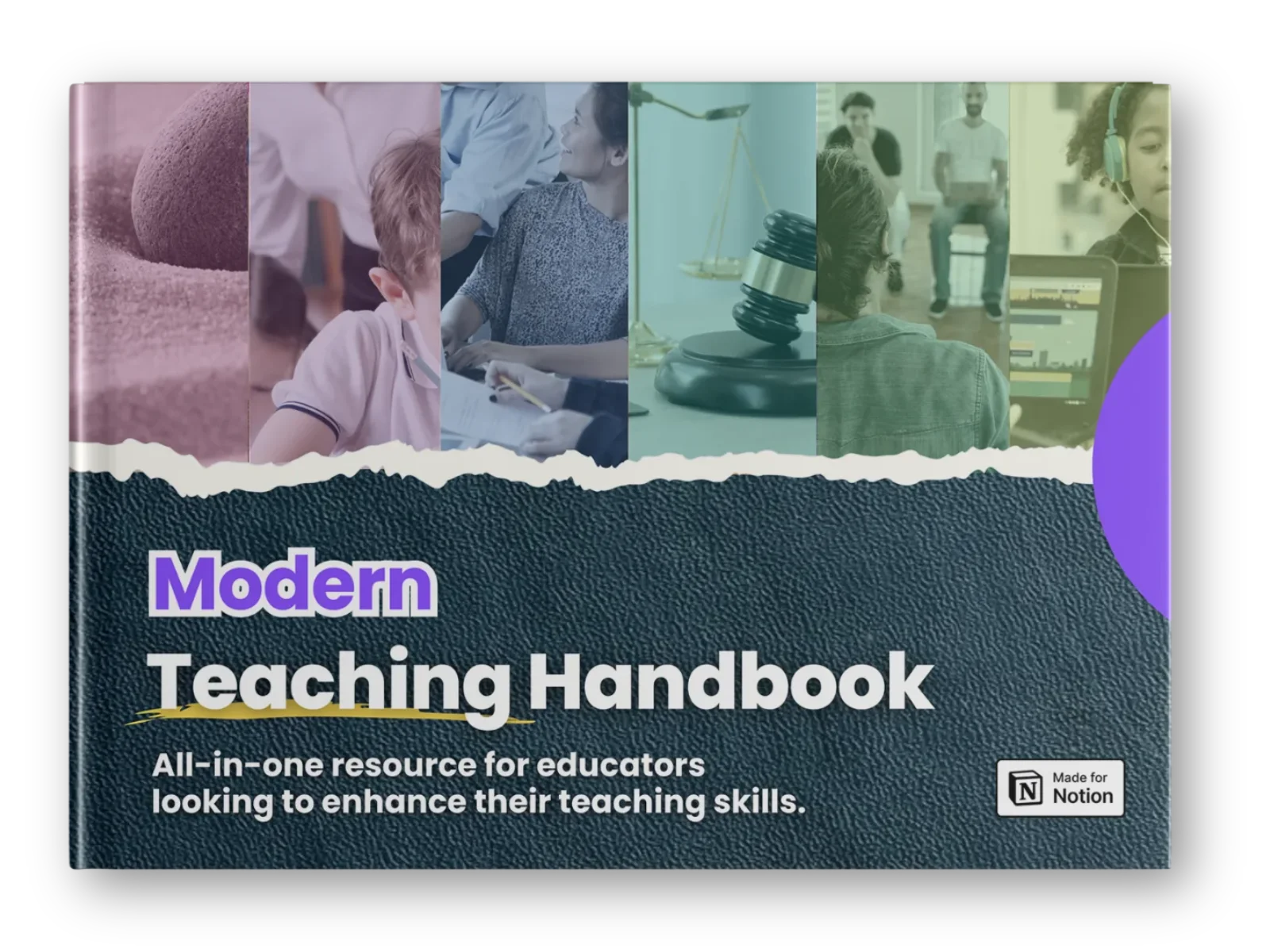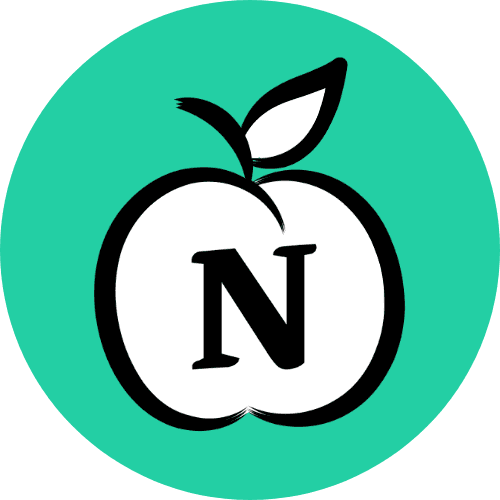Modern Teaching Handbook
Master modern education with the all-in-one resource for educators. Get your free copy now!



Top Tips for Teachers to Build Leadership Skills Beyond the Blackboard
Top Tips for Teachers to Build Leadership Skills Beyond the Blackboard
Top Tips for Teachers to Build Leadership Skills Beyond the Blackboard

Article by
Milo
ESL Content Coordinator & Educator
ESL Content Coordinator & Educator
All Posts
Beyond the classroom, teachers possess a unique blend of skills and experience that make them natural leaders. However, the potential to influence and inspire extends far beyond the confines of the school building. and beyond. By exploring strategies for building confidence, collaboration, and communication, teachers can unlock their leadership potential and become influential change-makers.
In this article, we will offer practical advice for educators for developing their leadership abilities and creating a positive impact on their school community.
Beyond the classroom, teachers possess a unique blend of skills and experience that make them natural leaders. However, the potential to influence and inspire extends far beyond the confines of the school building. and beyond. By exploring strategies for building confidence, collaboration, and communication, teachers can unlock their leadership potential and become influential change-makers.
In this article, we will offer practical advice for educators for developing their leadership abilities and creating a positive impact on their school community.
Modern Teaching Handbook
Master modern education with the all-in-one resource for educators. Get your free copy now!

Modern Teaching Handbook
Master modern education with the all-in-one resource for educators. Get your free copy now!

Modern Teaching Handbook
Master modern education with the all-in-one resource for educators. Get your free copy now!

Pursue Advanced Certifications and Training
Marymount University suggests that if you want to positively change your organization and society, try to upgrade yourself and stand out from others. Courses like ‘Educational Leadership and Organizational Innovation’ can empower you to bring that change you want to see and also inspire people around you.
Teachers can take specialized certifications in curriculum development and instructional leadership to doctoral programs like online Ed.D programs. With these programs, teachers can gain a deeper understanding of educational systems, policy, and change management.
Investing in professional growth is essential for aspiring leaders. Teachers can significantly enhance their leadership capabilities by pursuing advanced certifications and training. These opportunities provide educators with the theoretical framework and practical skills needed to excel in administrative roles.

Engage in Professional Learning Communities (PLCs)
Teachers can significantly enhance their leadership skills by actively participating in professional learning communities (PLCs). These collaborative groups offer a platform for educators to share best practices, analyze student data, and collectively develop strategies to improve student outcomes.
According to Newsela, PLCs emerged in the early 2000s, and since then, they have grown in popularity. They are an integral part of many schools and districts. PLCs operate through a process in which teachers work associatively in repeating cycles. These cycles involve collective queries and action research that provide the best results for the students.
By repeatedly contributing ideas, challenging assumptions, and providing support to colleagues, teachers can develop their ability to influence and lead others. PLCs foster a culture of continuous learning and growth, empowering teachers to become effective instructional leaders within their schools.
What should teachers focus on during PLC meetings to ensure they are productive?
Teachers should prioritize student learning by focusing on common assessments, data analysis, and collaborative planning to identify and address student needs. Regular reflection on teaching strategies and effective interventions are also crucial for maximizing productivity in PLC meetings.
Take on Mentoring and Coaching Roles
Mentoring and coaching offer valuable opportunities for teachers to develop their leadership skills. By guiding and supporting colleagues, teachers can refine their communication, empathy, and problem-solving abilities.
Harvard Business Review advocates that mentorship can be very helpful for youngsters in their professional growth. Around 75% of executives believe that their mentors have played a big role in their development, while 90% are very happy with their mentors.
Mentoring and coaching relationships also allow teachers to share their expertise, inspire others, and build strong professional connections. As mentors and coaches, teachers can cultivate a positive school culture and contribute to the overall growth and development of their colleagues. According to World Metrics, coaching can improve task performance by 70%.
What training or preparation is needed to become an effective mentor or coach?
To become an effective mentor or coach, teachers need training in communication, active listening, and providing constructive feedback. Additionally, understanding adult learning theories and building rapport with mentees are crucial for successful mentoring and coaching relationships.
Develop and Implement School Improvement Projects
Teachers can demonstrate strong leadership by initiating and driving school improvement projects. By identifying areas for growth, such as enhancing student engagement or improving literacy rates, teachers can lead teams to develop and implement innovative solutions. This process involves critical thinking, problem-solving, and project management skills.
However, as stated in a report by Deloitte, only 14% of workers or any organization are willing to share their skills. Their main concern is that their skills and talents must be used aesthetically, and they should have some extra benefit from it. Successful project implementation not only benefits students but also positions teachers as influential change agents within their school community.
Enhance Communication and Conflict Resolution Skills
Effective communication and conflict resolution are fundamental to successful leadership. Teachers can enhance these skills by actively seeking opportunities to engage in open dialogue with colleagues, parents, and students. Developing strong listening skills, practicing empathy, and learning to express ideas clearly and respectfully are essential.
Moreover, training in mediation and negotiation techniques can equip teachers with the tools to navigate challenging conversations and find common ground. This fosters collaboration and trust within the school.
How can teachers develop their conflict resolution skills?
Teachers can develop their conflict resolution skills by seeking opportunities to mediate disputes, attending training workshops, and practicing active listening and empathy. Role-playing conflict scenarios can also help them develop effective strategies for managing difficult conversations.
Leverage Technology for Leadership
Technology has transformed the educational landscape, and teachers can capitalize on these tools to enhance their leadership roles. By utilizing digital platforms, teachers can connect with colleagues, access professional development resources, and collaborate on innovative projects. Leveraging data analytics and educational technology can inform instructional decisions, enhance student outcomes, and showcase leadership abilities.
In a survey reported in IJRISS, it was found that only 56% of teachers had used technology in their formal teaching. Around 60% of teachers said they seldom make use of technology and only during special development activities or teaching. Hopefully, these figures will be rising and there will be more technology use while regular teaching.
Embracing technology empowers teachers to become more effective communicators, innovators, and advocates for student success.
Unleashing the Leader Within
By embracing these strategies and cultivating a growth mindset, teachers can transform themselves into influential leaders who inspire and empower others. As educators expand their skill set and take on new challenges, they elevate their careers and also contribute to thriving learning environments.
By stepping outside the classroom and into leadership roles, teachers can make a lasting impact on their schools, communities, and the broader educational landscape. Remember, every teacher possesses the potential to be a leader; it simply requires the courage to step up and seize the opportunity.
Pursue Advanced Certifications and Training
Marymount University suggests that if you want to positively change your organization and society, try to upgrade yourself and stand out from others. Courses like ‘Educational Leadership and Organizational Innovation’ can empower you to bring that change you want to see and also inspire people around you.
Teachers can take specialized certifications in curriculum development and instructional leadership to doctoral programs like online Ed.D programs. With these programs, teachers can gain a deeper understanding of educational systems, policy, and change management.
Investing in professional growth is essential for aspiring leaders. Teachers can significantly enhance their leadership capabilities by pursuing advanced certifications and training. These opportunities provide educators with the theoretical framework and practical skills needed to excel in administrative roles.

Engage in Professional Learning Communities (PLCs)
Teachers can significantly enhance their leadership skills by actively participating in professional learning communities (PLCs). These collaborative groups offer a platform for educators to share best practices, analyze student data, and collectively develop strategies to improve student outcomes.
According to Newsela, PLCs emerged in the early 2000s, and since then, they have grown in popularity. They are an integral part of many schools and districts. PLCs operate through a process in which teachers work associatively in repeating cycles. These cycles involve collective queries and action research that provide the best results for the students.
By repeatedly contributing ideas, challenging assumptions, and providing support to colleagues, teachers can develop their ability to influence and lead others. PLCs foster a culture of continuous learning and growth, empowering teachers to become effective instructional leaders within their schools.
What should teachers focus on during PLC meetings to ensure they are productive?
Teachers should prioritize student learning by focusing on common assessments, data analysis, and collaborative planning to identify and address student needs. Regular reflection on teaching strategies and effective interventions are also crucial for maximizing productivity in PLC meetings.
Take on Mentoring and Coaching Roles
Mentoring and coaching offer valuable opportunities for teachers to develop their leadership skills. By guiding and supporting colleagues, teachers can refine their communication, empathy, and problem-solving abilities.
Harvard Business Review advocates that mentorship can be very helpful for youngsters in their professional growth. Around 75% of executives believe that their mentors have played a big role in their development, while 90% are very happy with their mentors.
Mentoring and coaching relationships also allow teachers to share their expertise, inspire others, and build strong professional connections. As mentors and coaches, teachers can cultivate a positive school culture and contribute to the overall growth and development of their colleagues. According to World Metrics, coaching can improve task performance by 70%.
What training or preparation is needed to become an effective mentor or coach?
To become an effective mentor or coach, teachers need training in communication, active listening, and providing constructive feedback. Additionally, understanding adult learning theories and building rapport with mentees are crucial for successful mentoring and coaching relationships.
Develop and Implement School Improvement Projects
Teachers can demonstrate strong leadership by initiating and driving school improvement projects. By identifying areas for growth, such as enhancing student engagement or improving literacy rates, teachers can lead teams to develop and implement innovative solutions. This process involves critical thinking, problem-solving, and project management skills.
However, as stated in a report by Deloitte, only 14% of workers or any organization are willing to share their skills. Their main concern is that their skills and talents must be used aesthetically, and they should have some extra benefit from it. Successful project implementation not only benefits students but also positions teachers as influential change agents within their school community.
Enhance Communication and Conflict Resolution Skills
Effective communication and conflict resolution are fundamental to successful leadership. Teachers can enhance these skills by actively seeking opportunities to engage in open dialogue with colleagues, parents, and students. Developing strong listening skills, practicing empathy, and learning to express ideas clearly and respectfully are essential.
Moreover, training in mediation and negotiation techniques can equip teachers with the tools to navigate challenging conversations and find common ground. This fosters collaboration and trust within the school.
How can teachers develop their conflict resolution skills?
Teachers can develop their conflict resolution skills by seeking opportunities to mediate disputes, attending training workshops, and practicing active listening and empathy. Role-playing conflict scenarios can also help them develop effective strategies for managing difficult conversations.
Leverage Technology for Leadership
Technology has transformed the educational landscape, and teachers can capitalize on these tools to enhance their leadership roles. By utilizing digital platforms, teachers can connect with colleagues, access professional development resources, and collaborate on innovative projects. Leveraging data analytics and educational technology can inform instructional decisions, enhance student outcomes, and showcase leadership abilities.
In a survey reported in IJRISS, it was found that only 56% of teachers had used technology in their formal teaching. Around 60% of teachers said they seldom make use of technology and only during special development activities or teaching. Hopefully, these figures will be rising and there will be more technology use while regular teaching.
Embracing technology empowers teachers to become more effective communicators, innovators, and advocates for student success.
Unleashing the Leader Within
By embracing these strategies and cultivating a growth mindset, teachers can transform themselves into influential leaders who inspire and empower others. As educators expand their skill set and take on new challenges, they elevate their careers and also contribute to thriving learning environments.
By stepping outside the classroom and into leadership roles, teachers can make a lasting impact on their schools, communities, and the broader educational landscape. Remember, every teacher possesses the potential to be a leader; it simply requires the courage to step up and seize the opportunity.
Modern Teaching Handbook
Master modern education with the all-in-one resource for educators. Get your free copy now!

Modern Teaching Handbook
Master modern education with the all-in-one resource for educators. Get your free copy now!

Modern Teaching Handbook
Master modern education with the all-in-one resource for educators. Get your free copy now!

Table of Contents
Modern Teaching Handbook
Master modern education with the all-in-one resource for educators. Get your free copy now!
2024 Notion4Teachers. All Rights Reserved.
2024 Notion4Teachers. All Rights Reserved.
2024 Notion4Teachers. All Rights Reserved.
2024 Notion4Teachers. All Rights Reserved.







